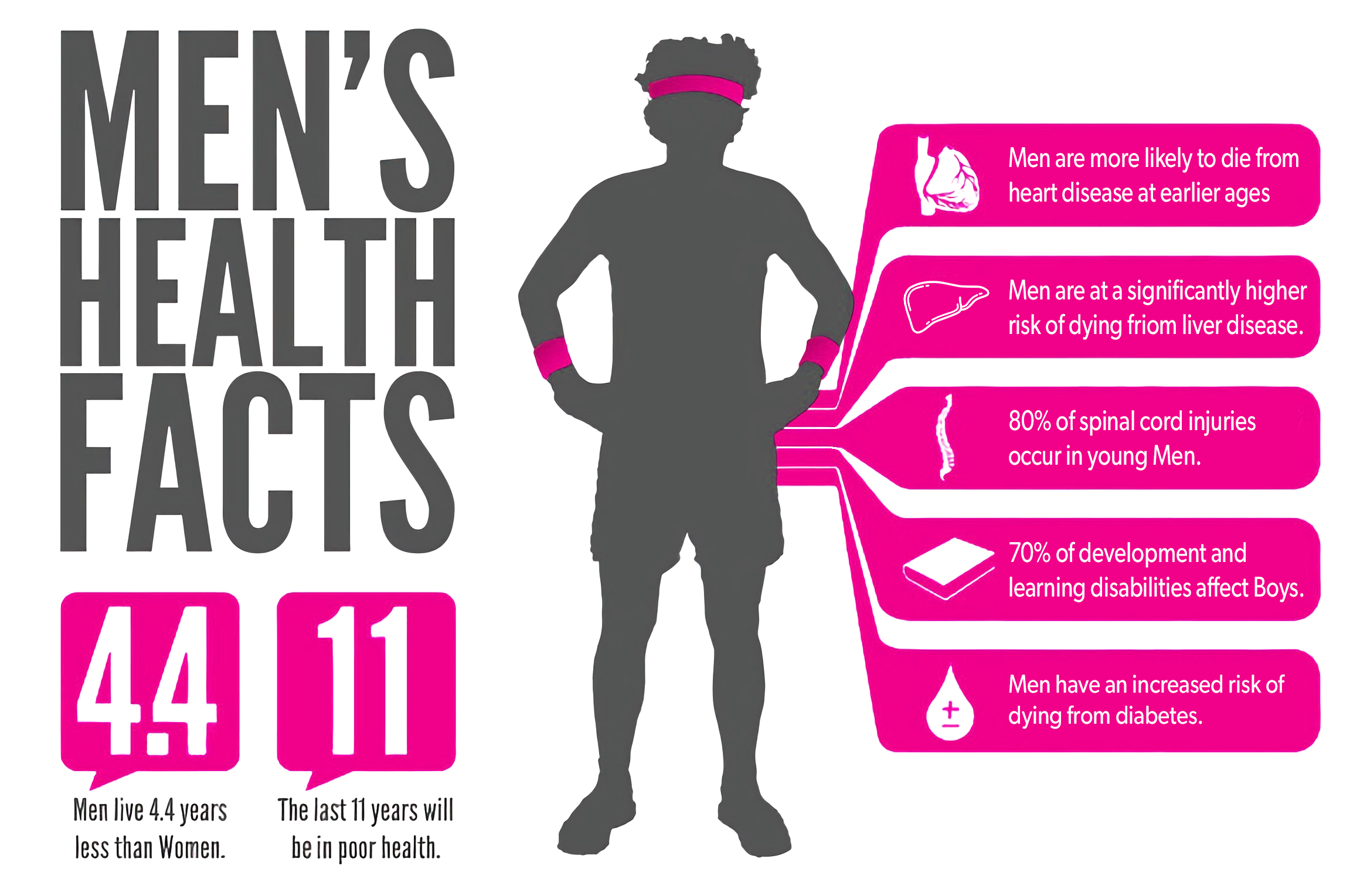Why We Need To Be Talking About Men’s Health
“Guys that are involved and connected are more likely to seek professional help if they need it.”
In most countries, including Australia, the health of the average male is generally poorer than that of women.
Not only are fatal accidents and suicide rates exponentially higher, but males are also far more likely to suffer from both genetic and lifestyle-related health conditions and thus lead shorter lives.
Originating in the US in 1994, Men’s Health Week was created with the goal to spread some much-needed awareness of preventable health problems and encourage early detection and treatment of disease among men and boys. This week is incredibly important given recent alarming statistics in Aussie men’s health.

Men’s Health at a Glance
- A baby girl born in Australia in 2010 will on average be expected to live 4.3 years more than a baby boy born in the same year.
- The biggest cause of male deaths are accidents, cancer and heart disease.
- Men account for a whopping 94% of all workplace fatalities, even though they make up 56% of the working population.
- Young men, in particular, also make up for 80% of all spinal cord injuries
- Men are four times more likely than women to commit suicide. In fact, men make up three out of four suicides in Australia
Source: betterhealth.vic.gov.au
Why Men’s Health is worse than Women’s
Creating solutions to the current status of men’s health starts with getting to the root of the issue and encouraging more men to feel confident in seeking medical and psychological assistance. There are multiple theories as to why the status of men’s health is substandard.
It’s possible that the answer lies in genetic disposition. The Y chromosome (the male determining gene) contains far fewer genes than the female sex chromosome. Therefore, if a woman has a disease-producing gene on one of her X chromosomes, it may be counterbalanced by a normal gene on the other X, but if a man has the same bad gene on his X chromosome, he doesn’t have the extra protection of matching genes.

Workplace Stress
Research has shown workplace stress as one of the key reasons men experience lower life expectancy. The historical male role as the “breadwinner” means that males typically feel more pressure to work harder and longer hours as they feel they need to provide for their family. That burden can weigh heavily, creating a great deal of stress and anxiety which in turn has a detrimental effect on their mental health and wellbeing.
You are what you Eat
Men carry and gain weight differently than women. While women tend to store fats around their hips and thighs, men typically gain weight to their waistline (think of a beer belly). While this has potential danger either way, abdominal obesity carries a far greater risk than lower body obesity as it increases the risk of heart attacks and stroke.

Statistics sourced from “A Roadmap to Men’s Health: Current Status, Research, Policy & Practice 2010”
Happiness is the highest form of Health
Even in the 21st century, many of us still cling to outdated stereotypes.
Men often feel the pressure to fulfil the mammoth expectation of being the strong, super-macho sole provider for their family. Unsurprisingly, this work stress can lead to an increased risk of hypertension, heart attack, and stroke, as well as depression and anxiety. This in turn can lead to suicide.
Faced with this fixed idea that ‘strong men don’t need help’, men are less likely to reach out to medical professionals when facing physical or mental health issues out of a fear of being vulnerable.
It’s not only health professionals that are avoided, men are also less likely to engage and rely on their social networks. Not only is hanging out with your friends a fun way to pass the time, but it has also been shown to reduce the risk of an array of health problems, from the common cold, to depression, to even heart attacks and strokes. In fact, social isolation has been identified as a risk factor for heart disease.
The truth is, there is no shame in getting help. Not only is it human, but it is brave and a sign of true strength.
For this year’s Men’s Health Week, Nurse Next Door extends our gratitude to our clients and their families for ensuring that the men in their lives are receiving the quality of care that they deserve.
If we all work together to look out for one another, we can achieve a future where everyone has an equal chance for a healthy and happy life.
If you or anyone you know needs help:
Lifeline on 13 11 14
Kids Helpline on 1800 551 800
MensLine Australia on 1300 789 978
Suicide Call Back Service on 1300 659 467
Beyond Blue on 1300 224 636
Headspace on 1800 650 890
ReachOut
Care Leavers Australasia Network (CLAN) on 1800 008 774
At Nurse Next Door, we are passionate about Making Lives Better. If you want to celebrate ageing click here to learn more about The Power of Happier Ageing or contact us today on 1300 600 247 to discuss how Nurse Next Door can help you keep doing what you love.
